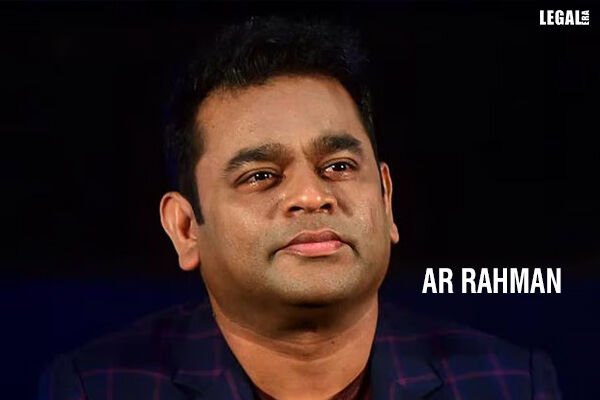
AR Rahman Wins Appeal In Veera Raja Veera Copyright Dispute With Dagar Family
Dagar family’s copyright claim rejected in interim by Delhi High Court
In a significant legal development concerning artistic rights and traditional compositions, the Division Bench of the Delhi High Court has set aside an interim injunction that had earlier been imposed on celebrated music composer A.R. Rahman. The order was passed in the context of an ongoing copyright infringement case related to the song Veera Raja Veera from Mani Ratnam’s 2023 film Ponniyin Selvan II.
Background of the Case
The dispute centres around allegations made by Padma Shri awardee and classical vocalist Ustad Faiyaz Wasifuddin Dagar. Dagar claimed that Rahman’s Veera Raja Veera was substantially identical to Shiva Stuti, a classical composition created in the 1970s by his father, Ustad Nasir Faiyazuddin Dagar, and uncle, Ustad Zahiruddin Dagar collectively known as the Junior Dagar Brothers. The composition is deeply rooted in the Dhrupad tradition of the Dagar Gharana.
In a suit filed before the Delhi High Court, Dagar asserted that Shiva Stuti had been performed at prominent international platforms, including the Royal Tropical Institute in Amsterdam in 1978, and featured in the classical album Shiva Mahadeva. He contended that Rahman’s song was not merely inspired by, but identical to, the original composition with only lyrical modifications. On this basis, Dagar sought a formal credit across all platforms and an injunction to prevent the continued use of the song by Rahman and associated production houses: Madras Talkies, Lyca Productions, and Tips Industries.
Single-Judge Bench Ruling
The initial interim injunction was granted by Justice Prathiba M. Singh, who concluded that Veera Raja Veera bore a near-identical resemblance to Shiva Stuti. The Court remarked that the song was “not merely based on or inspired by ‘Shiva Stuti’ but identical… with mere change in lyrics.” Based on this finding, Justice Singh issued an order restraining Rahman and others from further exploiting the song.
Division Bench Overturns Interim Order
Upon appeal, a Division Bench comprising Justices C. Hari Shankar and Om Prakash Shukla reviewed the matter and overturned the injunction. “We have allowed the appeal. We have authored concurrent opinions. We have set aside the impugned order by the single-judge on principle,” the Bench stated. The judges clarified, however, that their decision was based solely on legal principles governing interim relief and did not reflect any assessment of the underlying claims of copyright infringement. In other words, while the interim injunction was quashed, the question of whether Veera Raja Veera constitutes a copyright infringement remains open for future adjudication.
Defence and Counterclaims
The respondents—Rahman, Madras Talkies, Lyca Productions, and Tips Industries—vigorously denied the allegations. Madras Talkies described the accusations as “misconceived” and asserted that the composition was derived from a traditional source, not from the Dagar family’s copyrighted material. The defendants also questioned Dagar’s intentions, suggesting he was motivated by publicity and financial interest.
Furthermore, Tips Industries argued that copyright law does not extend to the style or “manner of singing,” implying that Dagar’s claim lacked legal merit in the absence of infringement of actual musical notations or lyrics.
Attempts at Resolution
According to Dagar, Rahman had acknowledged the matter in a phone call and indicated a willingness to explore resolution. However, Dagar maintained that no substantive follow-up occurred, prompting him to pursue legal recourse.
Next Steps
The case continues to highlight complex intersections between classical heritage, intellectual property rights, and modern musical expression. With the interim injunction lifted, Veera Raja Veera can continue to be used and distributed pending final adjudication. The substantive issues of copyright and authorship, however, remain undecided and are likely to be subject to detailed legal scrutiny in subsequent hearings. This case sets a precedent in weighing traditional compositions and their reinterpretation in contemporary art forms, raising critical questions for India’s cultural and legal landscapes.